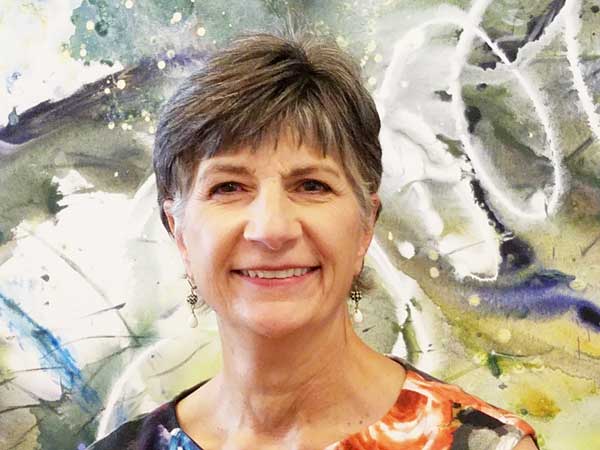I think you’ll agree that if you want to grow your business, you’ve got to have a great team on your side. One of your key team members should be a seasoned, savvy and well-connected business banker.
This interview series with Andy Pletz, Vice President and Commercial Relationship Manager with Umpqua Bank in Bellevue, Washington, will give you insights into what makes for a productive banking relationship that works for both parties: business owner and banker.
In Part I of the series, Andy shares what you should look for in a bank (and banker), and the impact bank size should have in your decision process when looking to find the best bank for your needs.

Should You Be Looking for a Banker or Bank: What’s the Difference and What’s Most Important?
Lauren: Andy, from your point of view, what do you wish business owners knew about finding and working with a bank? I started to say banker, and then changed it to bank. So that’s my first question: Should you be looking for a banker or a bank?
Andy Pletz: That’s an insightful question. I think it’s a little of both. It’s important to understand the bank itself. Are they financially sound? I think most banks have come through the dark days of the recession. There are more capital requirements for banks, so that may not be as critical of an issue, but it should always be a factor that somebody thinks about. Also understand what your business needs are. The bank size is important to help figure out the right fit – and I’m all about the right fit.
What’s important about a banker is their credibility within their organization. One thing that I would ask is how long has that banker been with the bank? It’s important that they have credibility within their organization to get things accomplished for their business clients.
So, ask yourself of a perspective banker, “How is this person going to be able to represent me to their people inside their bank?”
Represent, advocate, understand. There is also a personal dynamic when you’re dealing with your banker: are they a good person? Do they treat you well, are they respectful, are they a good communicator, are they responsive? These attributes are important for the banker to have. However, they could be the nicest person but if they don’t have any credibility within their organization, it’s going to be difficult to get things accomplished for their clients . Both of those things go hand in hand. Both of those come into play whether it’s the banker or the bank.
I think also asking: do I have the right bank for me and my business? Is it a large multinational organization, a small community bank, or a mid-sized bank? It really comes down to your specific business and what your needs are. People want different things from their bank relationships. Some people simply want capital; they want the money. They don’t want the input or the dialogue. Some people want advice and resources. Some people want the lowest rates, some people want a good product set. I’ve worked for large organizations and I’ve worked for small organizations, and what I will say is that all banks say, “We’ve got great service.”
And it seems that all banks say, “We love small businesses.”
And they mean it, but the issue is, it’s different in each of those organizations. Larger banks generally have all the products and all the bells and whistles, and that’s good. What often is lacking in big organizations is that connection – who do I call when I have a problem? It’s “call the 800-number,” and good luck with that! You have that challenge with the big organizations.
With smaller organizations, you get the flip side. You get a great relationship and a great banker. You get somebody who knows your management, you talk to them, they know you, and this is great. But they don’t have a complete product set. If you’re a small organization and don’t need international banking, they could be a great fit for you. But if you need international banking, what are you going to do?
It’s understanding what the business needs are today and down the road. Are you looking for a banker who is going to be a trusted advisor? That’s what we bankers aspire to be. If we can be that trusted adviser and that’s what the client wants, it could be a really nice fit.
What’s the Difference Between Big and Mid-Size Banks and What Does It Matter to Your Business?
In your mind, what’s a community bank in terms of size versus a big bank? Is there such a thing anymore such as a mid-size bank? It sure seems like there’s been a lot of consolidation on the bigger end of things.
The typical community bank is generally thought to be a smaller bank, the one or two branch operations. Their senior management is local and active. That’s generally what I think most people think of as a community bank.
The bank I work for, Umpqua Bank, has taken that and sort of turned on its head a bit, because Umpqua is $25-$26 billion organization. I would call that mid-size. I would also call us a “super-regional” as we’re in five states. Umpqua, however, says, “We are the West Coast’s largest community bank.” Pundits would say, “You can’t be a community bank, you’re too big.” I would say it can be a state of mind. Like a community bank, we know our clients and are responsive to our clients. We also have all the bells and whistles that the big, big banks have.
Full disclosure here, I’ve banked with Umpqua for quite a while. A couple of years ago, I had some issues with a wire transfer from a family estate in Canada. My Umpqua banker connected me to someone in your treasury department in California. That same day, I got a call from this person in San Francisco. She said, “Here’s what you need to do….” Because of her help, I was able to get a better rate on the wire exchange.

A community bank couldn’t have helped with something like this. My sisters each banked with larger banks that had no interest whatsoever in helping out with their transfers.
Yes, it’s that “help” factor. Clients don’t know the business of banking, nor really should they have to, but the banker should know that. We should know who we can call to be able to connect our clients and help them with what’s going on. Sometimes there’s an education process but it’s really a connecting process. As a relationship manager, I don’t know everything. But I do know the people to bring in to be able to help a client. We’ve talked about bankers and their credibility. Do they know who can help with that process – that’s important.
Now that you’ve found your best bank/banker, how do you go about building a strong relationship with them? Read Part II here.




